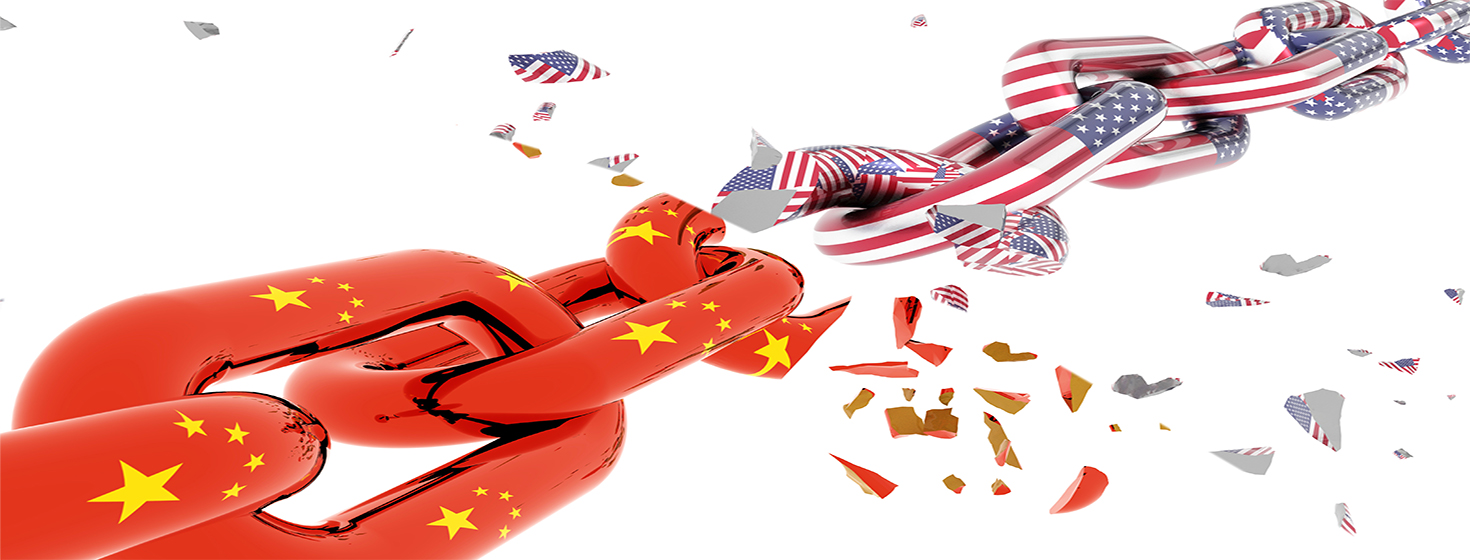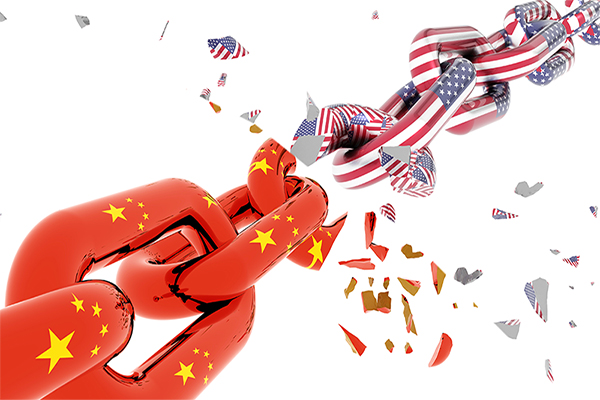Latest U.S. Tariff Plans Not Well Received By Global Supply Chain Stakeholders

President Donald Trump abruptly escalated his trade war with China, announcing that he would impose a 10% tariff on $300 billion in Chinese imports that aren’t yet subject to U.S. duties after setbacks in negotiations with Beijing.
10% Tariffs on $300 billion in Chinese Imports
When President Trump yesterday announced that the United States will be implementing a 10% tariff on $300 billion in Chinese imports, effective September 1, it understandably sent further shockwaves through the freight transportation and logistics sectors.
One reason for this was that it spoke to ongoing inaction between the United States and China in their efforts to reach a mutually beneficial trade agreement, one whose chances of coming to fruition continue to get longer by the day, it seems.
In announcing the most recent round of tariffs, President Trump said, via Twitter, that this round of tariffs will coincide with the next scheduled round of talks between the U.S. and China, adding that this will be in the form of “a small additional Tariff of 10% on the remaining 300 Billion Dollars of goods and products coming from China into our Country, this does not include the 250 Billion Dollars already Tariffed at 25%.”
An analysis on this latest round of tariffs issued by global trade intelligence consultancy Panjiva made it clear that it is likely to jeopardize the next round of negotiations, coupled with possibly driving China to implement non-tariff retaliation such as the unreliable entities list as well as redirect state-owned enterprise spending.
What’s more, it observed that these tariffs are largely focused on consumer goods, with the firm pointing to China-originated products like smartphones, apparel, and footwear, laptop PCs, toys, an videogame consoles, among others.
And that is where the supply chain impact comes into play.
“All five products have peak imports between Sept. and Nov. each year, so there’s likely to be an acceleration of imports to try and beat tariffs, leading to disruption of supply chains and shipping networks,” wrote Panjiva.
“Panjiva’s data indicates Dell and HP, for example, maybe highly reliant on China and ship by sea. They may shift shipping to airfreight depending on profitability and model release considerations. The tariffs may end up being limited in scope. Tariffs on toys won’t prove popular and Hasbro has already indicated it will increase prices. Similar duties on apparel could be passed through to consumers and prove highly regressive.”
Not surprisingly, China is not pleased with this latest development, according to a report issued by its state media outlet, Xinhua, with saying it will have to take ‘necessary countermeasures; to defend its core national interests and its people's fundamental interests if the United States goes ahead with these announced tariff hikes.
Hua Chunying, China’s Foreign Ministry spokesperson, said in the report that the escalation of the trade frictions and the threat of ratcheting up tariffs by the U.S. are in line with neither the interests of the two countries' peoples nor the interests of the world, and will have a recessionary impact on the world economy.
United States Chamber of Commerce Strongly Opposed President Trump’s Announcement
“Raising tariffs by ten percent on an additional $300 billion worth of imports from China will only inflict greater pain on American businesses, farmers, workers and consumers, and undermine an otherwise strong U.S. economy,” said Myron Brilliant, executive vice president and head of International Affairs, U.S. Chamber of Commerce, in a statement.
“Like the President, the U.S. Chamber applauds the constructive dialogue between U.S. and Chinese negotiators. We are deeply disappointed that the two sides missed the opportunity in May to address the substantive disagreements between them and have not yet reached a comprehensive, enforceable agreement. We urge the two sides to recommit to achieving progress in the very near term before these new tariffs come into effect, and to remove all remaining tariffs as swiftly as possible.”
A similar sentiment was echoed by US-China Business Council (USCBC) President Craig Allen, who said the USCBC is concerned this recent development will drive the Chinese from the negotiating table, reducing hope raised by the second round of talks that ended this week in Shanghai.
“We’re concerned these additional tariffs will further erode our reputation as a reliable supplier, and our farmers, workers, and consumers will suffer more,” said Allen.
“China does not import enough to respond in kind, so any retaliation will be qualitative and disproportionately impact US companies operating in China. We are particularly concerned about increased regulatory scrutiny, delays in-licenses and approvals, and discrimination against US companies in government procurement tenders.”
Institute for Supply Management Manufacturing Business Survey Committee Chair Tim Fiore explained that the “trade war” needs to be solved, noting that there is not a consensus on a short-term solution.
“It is being used as a threat more and more often,” he said. “Using the economy as a threat to meet your political goals is a really dangerous place to be.”
Read Latest “Tariff” Articles:
- New round of tariffs may create new challenge for logistics managers, says Blume Global
- Tariff hike on Chinese imports likely to hurt average consumer, says RILA
Related Article: 8 Retailers Facing Rising Risk as China Trade War Escalates
Download Related Paper
How to Mitigate the Fallout of International Trade Relations New!
As global trade evolves further and newer tariffs come to the fore, procurement teams need to be mindful that complacency comes at high costs. Waiting to react to a policy change or delaying technology implementation can have serious implications for organizations engaging in cross-border trade. Download Now!
Article Topics
Avetta News & Resources
Compliance Risk: A Significant Impediment to the Modern Supply Chain Protecting Supply Chains Against Economic Uncertainty Supplier Classification: A Differentiator in the Modern Supply Chain Landscape New Cybersecurity Requirements Needed for Supply Chains Building End-to-End Risk Resiliency in Supply Chains Supply Chain 2030: Evolving Challenges, Opportunities and Technological Possibilities Extending ESG Best Practices Into the Supply Chain More AvettaLatest in Supply Chain
Ask an Expert: How Shippers Can Prep for Hurricane Season Apple Accused of Multiple Human Rights Violations South Korea Finally Overtakes China in Goods Exported to U.S. UPS Struggles in First Quarter With Steep Earnings Decline How Supply Chains Are Solving Severe Workplace Shortages SAP Unveils New AI-Driven Supply Chain Innovations How Much Extra Will Consumers Pay for Sustainable Packaging? More Supply ChainAbout the Author














